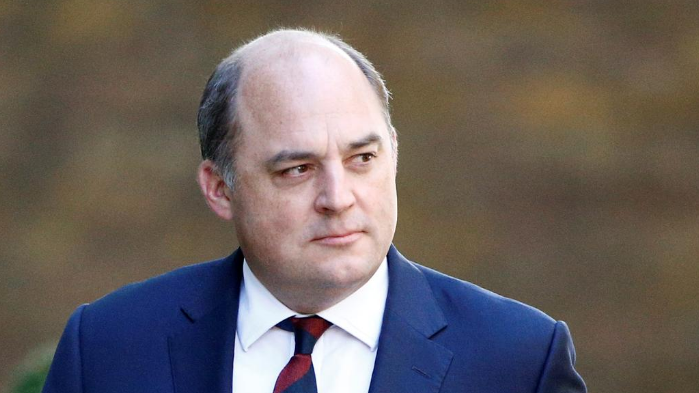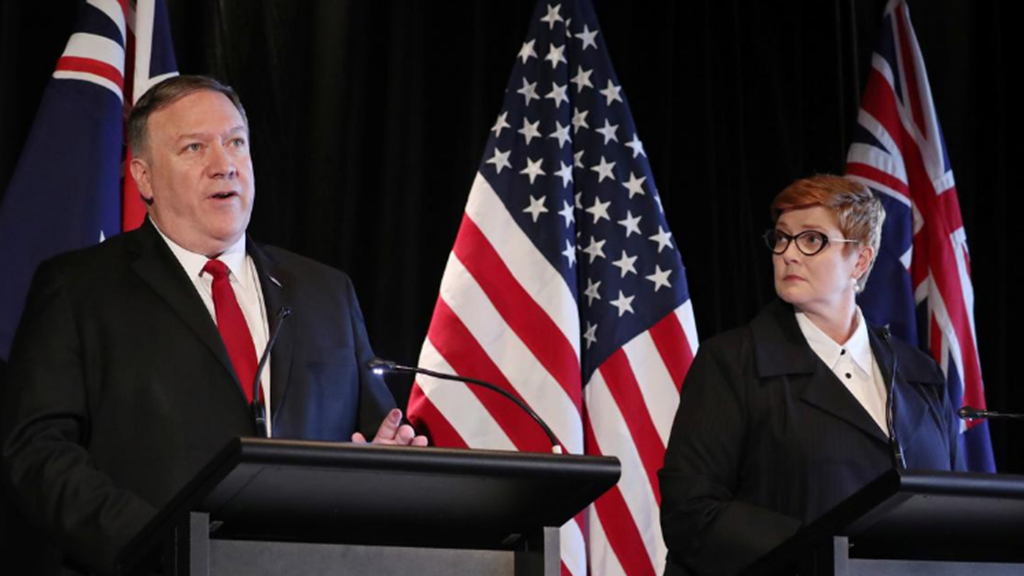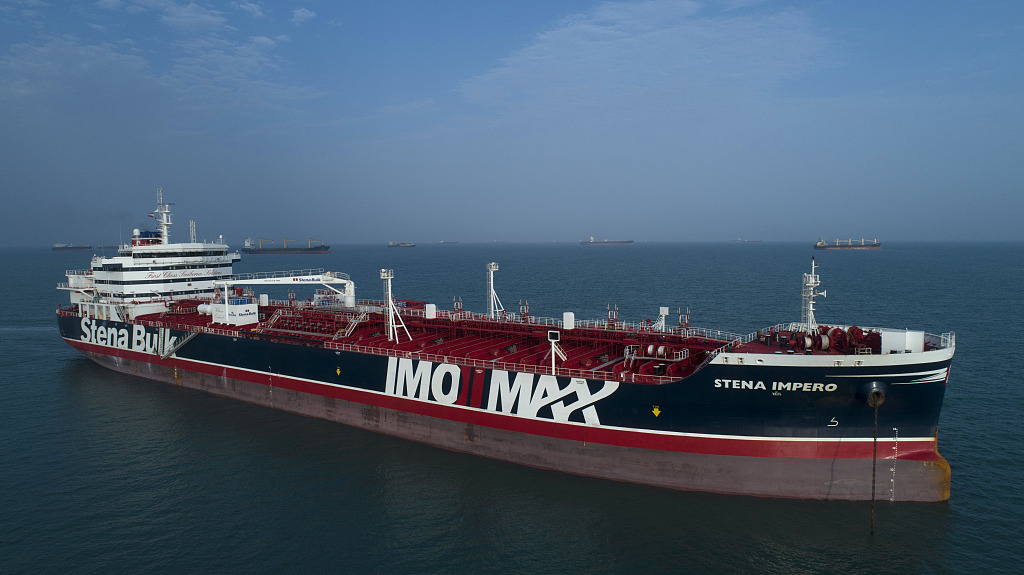
Britain on Monday joined the U.S. in a maritime security mission to protect merchant vessels traveling through the Strait of Hormuz after Iran seized a British-flagged vessel and the U.S. Secretary of State Mike Pompeo expressed confidence in building maritime coalition in the Gulf in Sydney.
British officials stressed that there was no change to London's policy on Iran but joining the U.S. is the most significant non-Brexit foreign policy move to date of Prime Minister Boris Johnson's 12-day-old government.
Pompeo said on Sunday that he was "very confident" the U.S. would be able to build a maritime coalition in the Gulf during his visit to Australia last week.
Read more: Pompeo confident in building Gulf maritime coalition despite cold responses

Newly appointed Britain's Defence Secretary Ben Wallace is seen outside Downing Street in London, Britain July 25, 2019. REUTERS/
Just two weeks ago, Britain was calling for a European-led naval mission. Now, it has joined what it said was a U.S.-led "international maritime security mission," though no other countries are yet involved.
"It is vital to secure the freedom for all international shipping to navigate the Strait of Hormuz without delay, given the increased threat," said British Defense Secretary Ben Wallace.
"The deployment of Royal Navy assets is a sign of our commitment to our UK flagged vessels and we look forward to working alongside the U.S. and others to find an international solution to the problems in the Strait of Hormuz," the Defense Secretary added.
The U.S. counterpart welcomed the British decision.
"This is an international challenge and we look forward to the opportunity to work together with the Royal Navy and with additional partners and allies who share the common goal of ensuring the free flow of commerce," said Commander Rebecca Rebarich, a Pentagon spokeswoman.

U.S. Secretary of State Mike Pompeo and Australia's Foreign Minister Marise Payne hold a joint news conference in Sydney, where he says he is "very confident" that the U.S. will be able to build a maritime coalition in the Gulf, Australia, August 4, 2019. /Reuters Photo
Tanker traffic through the Strait, through which a fifth of the world's oil passes has become the focus for a standoff between Iran and the West, as the U.S. has beefed up its military presence in the Gulf since May.
Last month, Iran's Revolutionary Guards seized a British tanker, Stena Impero, near the Strait of Hormuz for alleged marine violations. That came two weeks after Britain seized an Iranian oil tanker Grace 1 near Gibraltar, accusing it of violating sanctions on Syria.
Britain has repeatedly ruled out any exchange.
No change on Iran
The tanker dispute has tangled the United Kingdom in the diplomatic differences between the EU’s big powers – which want to preserve the Iran nuclear deal – and the United States which has pushed for a tougher policy on Iran.

British-flagged tanker Stena Impero is seized by Iran's Revolutionary Guards and anchors off at the Iranian port city of Bandar Abbas, July 22, 2019. /VCG Photo
"Our approach to Iran hasn't changed," British Foreign Secretary Dominic Raab said. "We remain committed to working with Iran and our international partners to de-escalate the situation and maintain the nuclear deal."
A British source said the focus of the new mission would be protecting the security of shipping and Britain would not be joining U.S. sanctions against Iran.
Another British source said London hoped the U.S.-led mission would transition toward a European-led mission. The United Kingdom has also offered to lead one of the U.S.-led mission’s maritime task groups.
No other nations have signed up to the U.S. mission.
Britain has deployed a destroyer HMS Duncan and a frigate HMS Montrose to the Gulf to accompany UK-flagged vessels through the strait. So far, 47 ships have been accompanied by the naval vessels, British officials said.
Later this year, another Type 23 Frigate, HMS Kent, will take over from HMS Duncan, while HMS Montrose completes planned maintenance. HMS Montrose will remain stationed in the Middle East until 2022.
Earlier on Monday, Iran's Foreign Minister Mohammad Javad Zarif said Tehran would no longer tolerate "maritime offenses" in the strait.
It has threatened to block all exports via the strait, through which a fifth of global oil traffic passes, if other countries comply with U.S. pressure to stop buying Iranian oil.

Copyright © 2018 CGTN. Beijing ICP prepared NO.16065310-3
Copyright © 2018 CGTN. Beijing ICP prepared NO.16065310-3